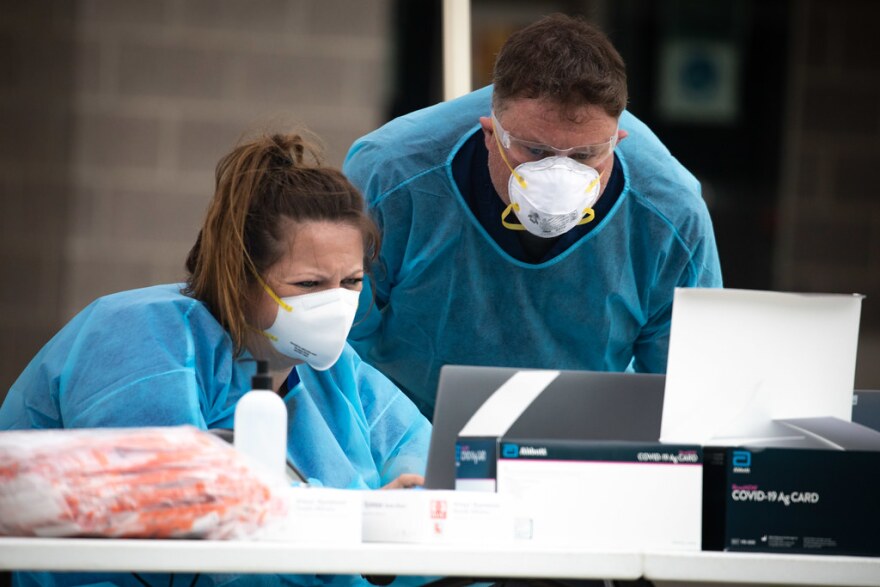Austin Public Health officials are urging the community to, once again, help flatten the curve as COVID-19 cases surge.
Austin-Travis County Health Authority Dr. Desmar Walkes said during a news conference Friday that the surge caused by the omicron variant is straining health care systems, including hospitals and ICUs. Staffing shortages are reducing the number of beds available while the variant is “finding the medically vulnerable.”
“We’re seeing increases in our hospitalizations, particularly in those not protected by vaccine and in those people with medical conditions that make them more vulnerable to having severe disease requiring hospitalizations,” Walkes said.
She said the omicron variant replicates 70 times faster in the airway than previous variants, making it easier to spread the virus.
“Because there’s so much virus in your airway, whenever you talk, cough, sneeze, sing, shout and [are not] masked, you’re able to spread this virus much more quickly to others,” she said.
Walkes said studies show that improving masking by just 10% can significantly reduce community transmission — a metric the Centers for Disease Control and Prevention uses to track how prevalent a disease is and how likely people are to be exposed to it. Community transmission is considered “high” if the total number of new cases per 100,000 residents in the last seven days is 100 or more. Travis County is already at more than 12 times that rate.
Community transmission is also considered high if the test positivity rate is over 10%. In Travis County, the rate is more than 33% right now. That means about 1 in 3 tests administered are coming back positive.
APH Chief Epidemiologist Janet Pichette said the “unprecedented” community transmission is also straining public health response — like testing and isolation facilities. Pichette said another isolation facility was opened this week and is already nearing capacity.
As the number of cases rises quickly, Pichette said APH can’t keep up with data entry and contact tracing efforts for positive cases.
“Even if you have a positive PCR [test], you may not hear from Austin Public Health because we are still processing thousands and thousands of cases that are positive and trying to investigate as many as we can,” she said.
APH officials urged people to help control the spread of the virus by wearing a well-fitting mask, staying home if they feel sick and getting vaccinated and boosted.
Adrienne Sturrup, the interim director of Austin Public Health, said the department is trying to increase its testing ability by a thousand tests per day and is working on getting more free at-home tests to neighborhood community centers that offer food pantry services throughout Travis County. She said the department continues to attempt to increase vaccine uptake in zip codes with low vaccination rates as well as in Black and Hispanic communities.
As to when the community can expect to see cases level off, Walkes said, “Modeling can’t predict human behavior."
"It’s really going to depend on the community’s response to the clarion call to arms," she said. "In this case, that’s putting masks on and getting vaccinated.”











